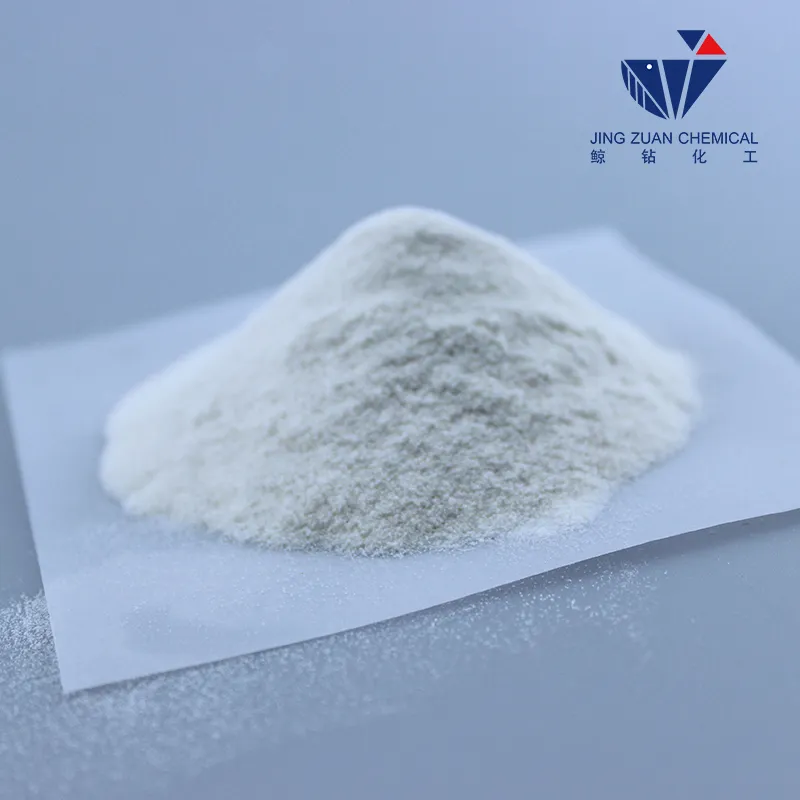
የካቲ . 18, 2025 07:37 Back to list
redispersible powder
In the realm of construction and building materials, redispersible polymer powder (RPP) stands out as a critical component for enhancing the performance of dry-mix mortar formulations. For those navigating this industry, understanding the various types of redispersible polymer powder is crucial, both for selecting the appropriate one for specific applications and for driving innovation in product formulations.
4. Acrylic Redispersible Powder Acrylic-based RPPs are differentiated by their outstanding UV stability and transparency in final products. Their use is prevalent in decorative plasters and mortars where aesthetic quality is paramount. Acrylic powders provide high durability and resistance to yellowing over time, maintaining the visual appeal of surfaces. They are also adaptable to different colors and textures, making them a favorite in architectural applications demanding precision and creativity. 5. Ethylene-Vinyl Chloride (EVC) Copolymer Powder EVC copolymer powders are characterized by their enhanced binding properties and resistance to wear and tear. They are frequently employed in tile grouts and cementitious flooring applications due to their excellent abrasion resistance. This type ensures that surfaces retain their integrity under high foot traffic, making it suitable for commercial and industrial environments. 6. Specialty Polymer Powders In addition to the standard types, the industry also offers specialty polymer powders tailored for specific needs. These include hybrid polymers that combine the best properties of different monomer constituents to address unique challenges in construction projects. Such innovations demonstrate the industry's commitment to advancing material science and expanding the capabilities of traditional mortars. When choosing a redispersible polymer powder for a project, several factors need consideration the environmental conditions to which the application will be exposed, the desired mechanical and aesthetic properties, and the specific substrate requirements. Collaborating with manufacturers who have a robust understanding of polymer science and real-world application experience can greatly enhance the effectiveness of the chosen powder. Finally, transparency and trustworthiness are vital in the construction materials industry. Relying on tested and certified RPP products not only ensures compliance with safety regulations but also fosters confidence in the final construction's durability and performance. As innovation continues to drive the evolution of redispersible polymer powders, staying informed and adaptive is essential for industry professionals committed to excellence in their craft.


4. Acrylic Redispersible Powder Acrylic-based RPPs are differentiated by their outstanding UV stability and transparency in final products. Their use is prevalent in decorative plasters and mortars where aesthetic quality is paramount. Acrylic powders provide high durability and resistance to yellowing over time, maintaining the visual appeal of surfaces. They are also adaptable to different colors and textures, making them a favorite in architectural applications demanding precision and creativity. 5. Ethylene-Vinyl Chloride (EVC) Copolymer Powder EVC copolymer powders are characterized by their enhanced binding properties and resistance to wear and tear. They are frequently employed in tile grouts and cementitious flooring applications due to their excellent abrasion resistance. This type ensures that surfaces retain their integrity under high foot traffic, making it suitable for commercial and industrial environments. 6. Specialty Polymer Powders In addition to the standard types, the industry also offers specialty polymer powders tailored for specific needs. These include hybrid polymers that combine the best properties of different monomer constituents to address unique challenges in construction projects. Such innovations demonstrate the industry's commitment to advancing material science and expanding the capabilities of traditional mortars. When choosing a redispersible polymer powder for a project, several factors need consideration the environmental conditions to which the application will be exposed, the desired mechanical and aesthetic properties, and the specific substrate requirements. Collaborating with manufacturers who have a robust understanding of polymer science and real-world application experience can greatly enhance the effectiveness of the chosen powder. Finally, transparency and trustworthiness are vital in the construction materials industry. Relying on tested and certified RPP products not only ensures compliance with safety regulations but also fosters confidence in the final construction's durability and performance. As innovation continues to drive the evolution of redispersible polymer powders, staying informed and adaptive is essential for industry professionals committed to excellence in their craft.
Next:
Latest news
-
Versatile Hpmc Uses in Different Industries
NewsJun.19,2025
-
Redispersible Powder's Role in Enhancing Durability of Construction Products
NewsJun.19,2025
-
Hydroxyethyl Cellulose Applications Driving Green Industrial Processes
NewsJun.19,2025
-
Exploring Different Redispersible Polymer Powder
NewsJun.19,2025
-
Choosing the Right Mortar Bonding Agent
NewsJun.19,2025
-
Applications and Significance of China Hpmc in Modern Industries
NewsJun.19,2025
Related PRODUCTS







